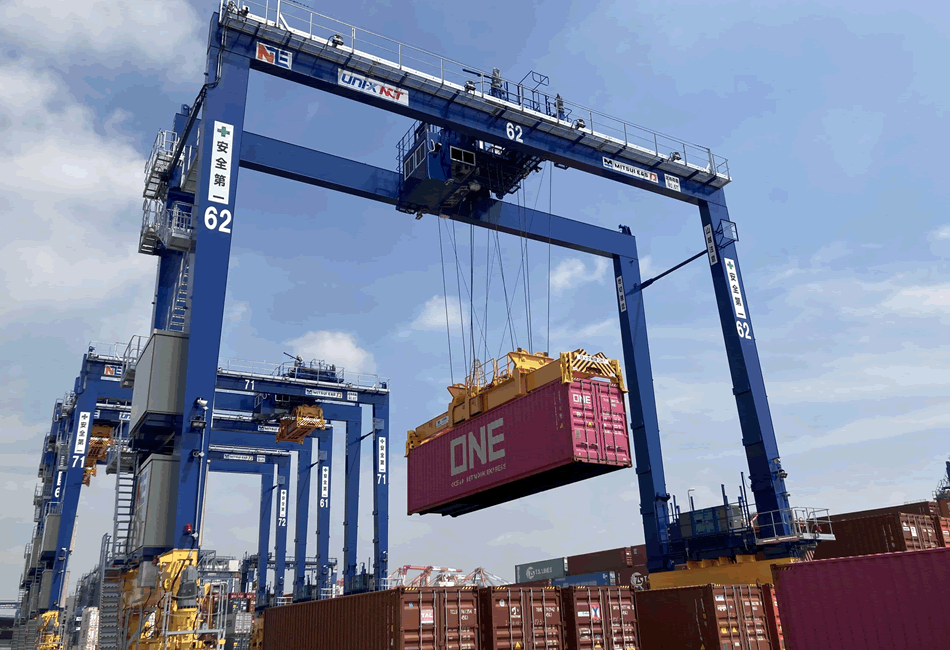Thanks to the delivery of four state-of-the-art NZE (Near-Zero Emission) cranes, NYK Line and UNI-X NCT Corporation (UNI-X) can begin the conversion to an environmentally sustainable operation in line with the goal set in 2021 of achieving carbon neutrality by 2040. The acquired environmental engagement implies converting all cargo handling equipment at the NYK Tokyo Container Terminal to Zero-Emission equipment. The initiative also aligns with the carbon neutral port concept promoted by Japan´s Ministry of Land, Infrastructure, Transport and Tourism to reduce greenhouse gas (GHG) emissions at ports.
Compared to the current hybrid type (of which Mitsui E&S Machinery Co., Ltd. (MES-M) has delivered 292 units to ports in Japan and overseas during the last thirteen years), the Near-Zero Emission type is equipped with a larger lithium-ion battery, making it possible to reuse the regenerative energy during cargo handling that was previously released by replacing heat with the maximum amount of reuse, and minimizes the diesel engine generator set. The recently delivered Near-Zero Emission Transtainer® RTG cranes are equipped with a large battery bank and a small diesel generator set and will achieve zero emissions in the near future by replacing the minimized diesel engine generator set with a hydrogen fuel cell power pack when the hydrogen supply infrastructure is fully developed.
MES-M and its U.S. subsidiary, PACECO® Corp. (PACECO) have pioneered the development of Zero-Emission Transtainer cranes with the aim of realizing decarbonization of ports. In fact, they are already working on the next milestone towards the path of port decarbonization: they were awarded a grant by the Japanese New Energy and Industrial Technology Development Organization (NEDO) as part of an overall project encompassing a demonstration of the hydrogen supply chain, from local production of clean hydrogen to the consumption point of port container handling equipment and drayage trucks powered by hydrogen fuel cell technology at the Port of Los Angeles in North America. The anticipated project term is from February 2022 to March 2026 and
It will enable an easy switching to a Zero-Emission hydrogen fuel cell power source that will significantly contribute to reduced emissions in the ports.
This will be the world’s first demonstration to operate hydrogen fuel cell powered cargo handling equipment including the H2-ZE Transtainer crane, and drayage trucks, fueled by local clean hydrogen production and supply facilities.


